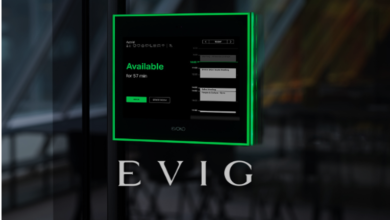When Optimising a Website: The Power of Meta & Title Tags

Meta and title tags are critical for SEO as they largely influence a website’s click-through rates from search engine results pages (SERPs) and provide search engines with important information about the page content. Properly optimized, they help improve a website’s search engine visibility and relevance.
Optimizing a website for search engines requires a strategic approach to metadata and title tags. These HTML elements serve as the first point of interaction with potential visitors, as they appear prominently in SERPs. A compelling title tag acts like a headline, enticing users to click, while an informative meta description provides a succinct overview of the page’s content, encouraging targeted engagement.
Search engines like Google weigh these tags when determining how to index and rank web pages. Utilizing relevant keywords and crafting descriptive, user-focused content within these tags can significantly enhance a site’s SEO performance, driving organic traffic and improving the user experience. An effective strategy around these elements is a cornerstone of on-page optimization.

Credit: fastercapital.com
The Importance Of Meta & Title Tags In Seo
Meta and title tags are SEO power players. These HTML elements define website content. Search engines and users rely on them. They shape first impressions. A sharp title and meta description can win clicks. An overlooked tag can mean lost traffic.
Search Engines: How They Interpret Meta & Title Tags
Search engines use algorithms to rank web pages. Title tags declare page titles. They are the foremost elements search engines analyze. Meta tags provide summaries. They contain keywords and page descriptions. Both tags improve relevance and ranking. Search engines then offer the best content to users.
- Title tags appear in search results and browser tabs.
- Meta descriptions follow title tags in search engine listings.
User Experience: Attracting Clicks With Well-crafted Tags
User experience starts with search results. Tags are the bait. A catchy title tag can increase click-through rates. The meta description must entice further. It should prompt action. Each tag must be clear, concise, and relevant.
| Tag Type | Purpose | SEO Benefit |
|---|---|---|
| Title Tag | Defines webpage title | Increases visibility and relevance |
| Meta Tag | Summarizes webpage content | Enhances click-through rates |
Well-crafted tags impact search performance. They affect rankings. The right words can draw attention. Content teams strive for the perfect blend of keywords and user appeal.

Credit: www.linkedin.com
Crafting Compelling Title Tags
Title tags can decide your website’s fate in search rankings. They grab attention and tell search engines what a page covers. A well-crafted title tag can mean the difference between a click to your website and a scroll past it.
Best Practices For Title Tag Length And Structure
Title tags must be concise and informative. Search engines like Google display up to 60 characters in search results. Keep titles within this limit for full visibility.
- Keep length between 50-60 characters to ensure they are fully visible.
- Start with the most important information, such as your main keyword.
- Ensure that title tags are readable and descriptive without keyword stuffing.
Thorough titles precede SEO success. They guide users and enhance relevance for search algorithms.
Incorporating Target Keywords For Maximum Impact
Target keywords within your title tags act as a beacon for relevant searches. Position them strategically for better search engine visibility.
- Place primary keywords at the start of your title tag.
- Avoid duplicating keywords, as this can appear spammy to search engines.
- Use brand names towards the end, unless you’re a well-known brand.
Including keywords effectively enhances your chances of ranking higher for those terms. It helps search engines understand page content
Mastering Meta Descriptions
Imagine handing out a flyer that has no catchy headline. Browsers might miss it completely. That’s the power of ‘Mastering Meta Descriptions’ for search engine optimization. Your meta description acts like that catchy headline that draws readers into your website from the search results page.
Meta Description Fundamentals: Length And Content
Think of meta descriptions as compact sales pitches for your webpage. These snippets of text appear beneath your page title in search engine results. They give searchers a preview of what to expect.
Keep it short and sweet. The ideal length is between 150-160 characters. Go beyond this, and search engines might truncate your message, leaving it incomplete.
Content quality matters. Include keywords naturally, summarizing the page content effectively. This relevance directly influences your page’s success in searches.
Increasing Ctr With Effective Meta Description Writing
Click-through rate (CTR) measures the number of clicks your page receives divided by how often it’s shown. Impactful meta descriptions can skyrocket your CTR.
- Inject a sense of urgency.
- Showcase your unique value.
- Include a clear call to action.
- Speak directly to the reader’s needs.
By refining these elements, a well-crafted meta description turns searchers into visitors, harnessing the immense power of SEO.
Enhancing Visibility With Meta Keywords
Enhancing Visibility with Meta Keywords involves refining elements that can push your website’s ranking higher in search engine results. Meta keywords, once a staple in SEO strategies, allowed webmasters to communicate directly with search engines via simple code. Despite evolving search engine algorithms, the proper use of these tags remains crucial for SEO.
Do Meta Keywords Still Matter?
Search engines like Google have evolved to rely less on meta keywords. Yet, they maintain some level of significance in ensuring visibility. It’s vital to know that not all search engines disregard them and for those that do, they still serve as a guide to the content’s context.
Balancing Relevance And Keyword Diversity
Relevance and keyword diversity are key to avoiding search engine penalties and ensuring a wide audience reach. Including a broad range of terms related to the content helps capture varied search intents.
- Conduct thorough keyword research to find the terms your audience is using.
- Integrate keywords that match your content and user search queries.
- Create a healthy mix of primary and secondary keywords to cast a wider net.
Achieving a balance between specific and diverse terms can result in a more robust SEO strategy. It may not be the meta keywords of the past, but the principle holds true.
Monitoring And Measuring Tag Performance
Once title and meta tags are in place, their performance needs tracking. This helps understand their impact on search rankings and website traffic. Effective monitoring ensures that these tags are not just set-and-forget elements of SEO but active tools contributing to a website’s discoverability online. Let’s dive into how tracking the success of title and meta tags can lead to a refined SEO strategy.
Tools For Tracking Title And Meta Tag Success
- Google Search Console: Track your pages’ performance in search results.
- Ahrefs: Analyze titles and descriptions of top-ranking pages.
- SEMrush: Get insights into meta tags and titles with SEO audits.
- Moz Pro: Keep track of how tags influence search rankings.
- Screaming Frog SEO Spider: Identify meta tag and title issues on-site.
Analyzing Metrics To Refine Seo Strategy
Metrics are like a roadmap for SEO improvement. Measuring specific metrics reveals tag performance. This allows for strategic tag optimization. Look at click-through rates (CTR), rankings, and impressions. These metrics inform whether titles catch users’ attention or if meta descriptions align with search queries. Understanding these numbers helps tweak tags for better performance and higher search visibility.
| Metrics | What It Tells You | Actionable Insight |
|---|---|---|
| CTR | Attracts users to click | Optimize tags for engagement |
| Rankings | Appeal to search algorithms | Use targeted keywords |
| Impressions | Visibility in search results | Increase relevance to search query |
Common Pitfalls To Avoid In Tag Optimization
Optimizing title and meta tags is key to improving your website’s SEO. Yet, many website owners fall into common traps. These errors can really hold your site back from ranking higher. Let’s explore the most common missteps you should avoid.
Duplicate Tags: How They Harm Seo
Duplicate tags may seem harmless but they hurt your SEO efforts. Search engines value unique content. They get confused by repeated tags. This can cause your pages to compete against each other. Duplicate tags can lower your site’s visibility.
Overstuffing And Irrelevant Keywords: Why Less Is More
Filling your tags with too many keywords is tempting. Yet, this practice, known as overstuffing, can backfire. Search engines prefer quality over quantity. Irrelevant keywords can mislead users and search engines. This leads to a poor user experience. Focus on a few relevant keywords instead.
Remember:
- Use unique title and meta tags for each page.
- Keep tags concise and on-topic.
- Choose relevant keywords that match your content.
- Monitor your tags’ performance and update as needed.

Credit: fastercapital.com
Conclusion
Understanding the impact of meta and title tags is crucial for SEO success. These elements guide search engines and influence user engagement. Crafting them with precision can significantly boost your site’s visibility. Remember, effective tags are a blend of relevance, clarity, and keyword optimization.
Keep refining them to stay ahead in the digital landscape.



